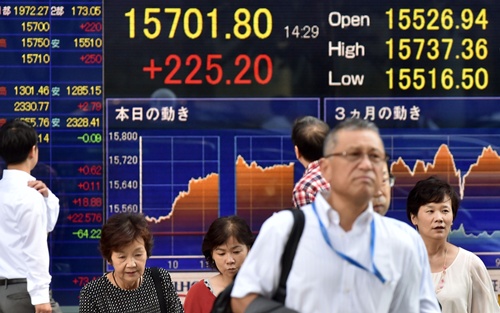
October 23, 2014
PARIS (AFP) - Here is a breakdown of efforts by the global community to fight the Ebola outbreak in west Africa, which has already left more than 4,500 people dead.
With an overall death toll of 4,555, the three countries most affected are Liberia (2,484 deaths), Sierra Leone (1,200) and Guinea (some 862), according to the World Health Organization (WHO). Health workers are especially exposed to the virus.
The WHO said on Tuesday that the three countries are "under-reporting" the casualties.
- Urgent needs and funds -
- The UN, which has set up the UN Mission for Ebola Emergency Response (UNMEER), has put at nearly $1.0 billion (780 million euros) the bill for fighting Ebola for six months, but says less than 40 percent of the amount has been received.
It underscores the need for 2,700 hospital beds by December and enhanced medical teams.
Once another $217 million in pledges in the pipeline arrives, the coffers will be 60 percent full.
- The 28-member European Union has pledged 500 million euros ($636 million) in aid, and has promised to ensure proper care for international health workers.
- The World Health Organization, which is estimating 5,000 to 10,000 new cases per week in west Africa from December, has appealed for $260 million.
- The World Bank has almost doubled its aid from $230 million to $400 million.
- The United States has earmarked more than $350 million.
- The International Monetary Fund (IMF) has released $130 million, shared between the three most affected countries, while the African Development Bank has provided $225 million in aid.
- The Bill and Melinda Gates Foundation has pledged $50 million to support programmes by the United Nations and other international organisations, while Facebook boss Mark Zuckerberg plans to give $25 million via the US Centers for Disease Control and Prevention (CDC).
- Materials and personnel -
- The US has begun to deploy 3,200 troops to train health workers in west Africa, provide logistical support and install mobile medical labs.
Up to 4,000 could be deployed if needed.
US federal agencies have sent an additional 130 experts to the region.
- Norway has unveiled 39 million euros in aid, and sent 220 people to fight the epidemic.
- France is sending doctors, and plans to install three treatment centres in remote regions in Guinea where the epidemic is most prevalent.
- Doctors without Borders (MSF - Medecins sans Frontieres) is already on the front lines, where it has set up six treatment centres. More than 3,000 doctors are involved, including nearly 300 from foreign countries.
- The Philippines could deploy substantial numbers of health care personnel with financial backing from Britain.
- Britain plans to send 750 military personnel, a medical ship and helicopters to Sierra Leone to help build treatment centres.
- Cuba has sent a first contingent of 165 doctors and medical workers to Sierra Leone. In all, Cuba's medical contingent in west Africa is expected to reach more than 460.
- China, which has brought its aid to nearly 43 million euros, has said it intends to send "dozens of experts" to train medical personnel in Africa.
- Canada, which has increased its aid to CAN$65 million, has sent a first batch of an experimental Ebola vaccine developed by Canadian scientists to Switzerland for testing by the WHO.
- The International Atomic Energy Agency (IAEA) is to send equipment to help provide quick diagnoses of suspected victims.
- East African nations will send over 600 health workers to west Africa to combat the spread of Ebola, a regional five-nation bloc says.








